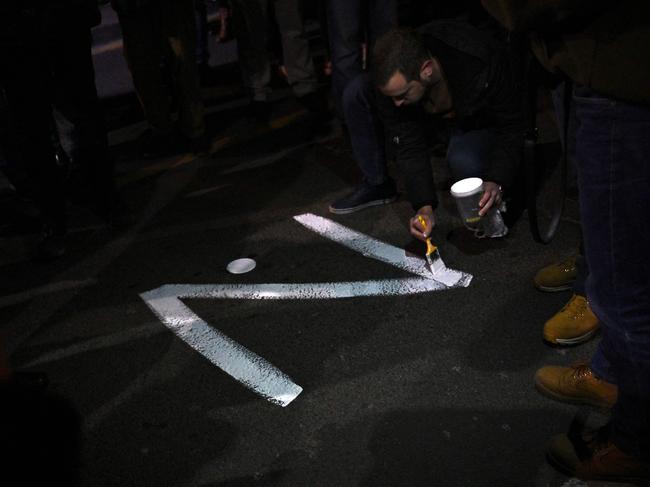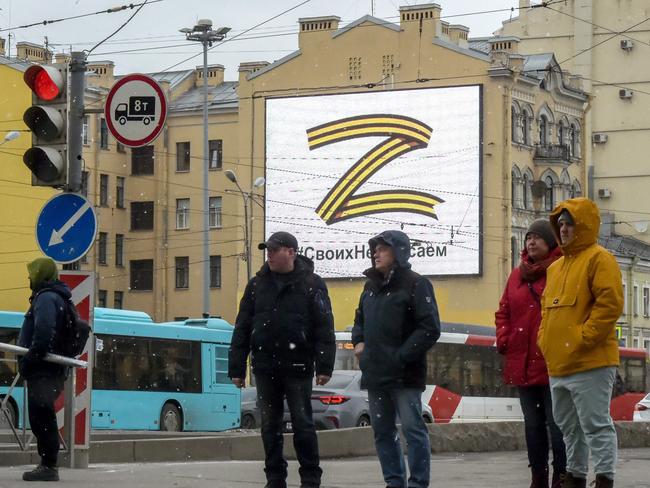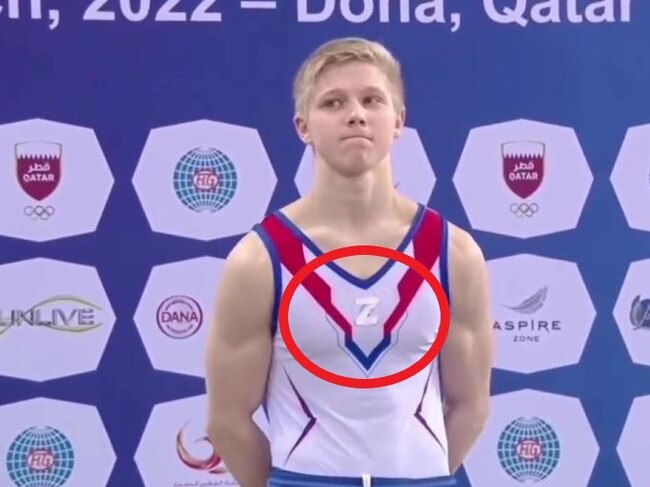Russia-Ukraine updates: Why ‘Z’ has become a Russian pro-war symbol
It’s become a propaganda tool of the Ukraine invasion. But what does the controversial “Z” symbol actually mean?
World
Don't miss out on the headlines from World. Followed categories will be added to My News.
It’s become one of the symbols of the Ukraine invasion, plastered all over Russian tanks. But what does the menacing “Z” symbol actually mean?
It first caught attention after pictures were posted on social media of Russian tanks with “Zs” as soldiers made their way to Ukraine.
The symbol was initially used by the Russian military to distinguish its vehicles from other tanks and troop carriers, but the Russian Defence Ministry has now issued a statement saying that the “Z” means victory.

The BBC reports that the pro-Putin website Tsargrad told readers the simple marking could “avoid friendly fire” and couldn’t be “mixed up with anything else”.
Kamil Galeev, an independent researcher and former fellow at the Wilson Centre, a nonpartisan policy think tank in Washington, DC, described the Z phenomenon as “a symbol of new Russian ideology and national identity.”
“Z is a letter that Russian Military are putting on their vehicles departing to Ukraine,” he tweeted.

“Some interpret Z as Za pobedy (for victory). Others - as Zapad (West).”
Russian special forces veteran Sergey Kuvykin told the Russian magazine website, Life, that different symbols signified different military units.
“Symbols like these are used - a ‘Z’ in a square, a ‘Z’ in a circle, a ‘Z’ with a star or simply ‘Z’ on its own.”

He said the markings helped make sure that troops, who might not be in contact with other comrades, were where they should be.
The “Z” symbol has been adopted by ordinary Russians as a sign of support for Putin’s invasion, popping up on billboards, bus stops, taxis and even funeral hearses.

Russian gymnast Ivan Kuliak sparked global anger by wearing a “Z” on his leotard in support of the invasion of Ukraine on a World Cup podium in Doha, while standing next to the event’s Ukrainian winner Illia Kovtun.
The defiant 20-year-old, who took out the bronze medal in the parallel bars, insisted that he has no regrets – and would even do the same again if he gets the chance.
“I saw it on our military and looked at what this symbol means,” Kuliak, who received training with the Russian military last year, said.
“It turned out to be ‘for victory’ and ‘for peace’. I didn’t wish anything bad on anyone. I just showed my position. As an athlete, I will always fight for victory and play for peace.”





